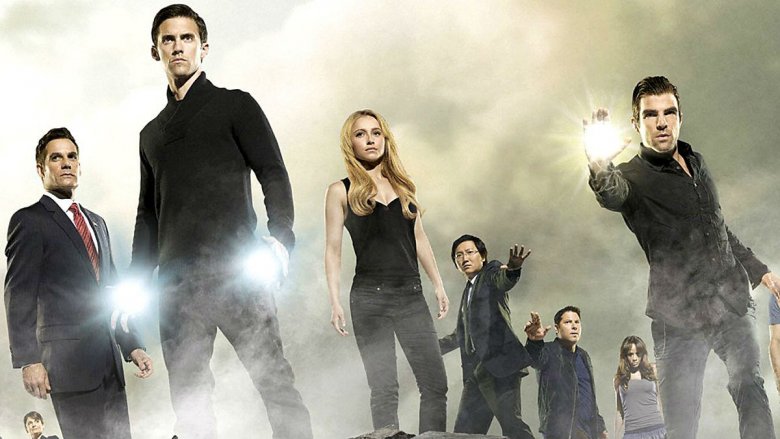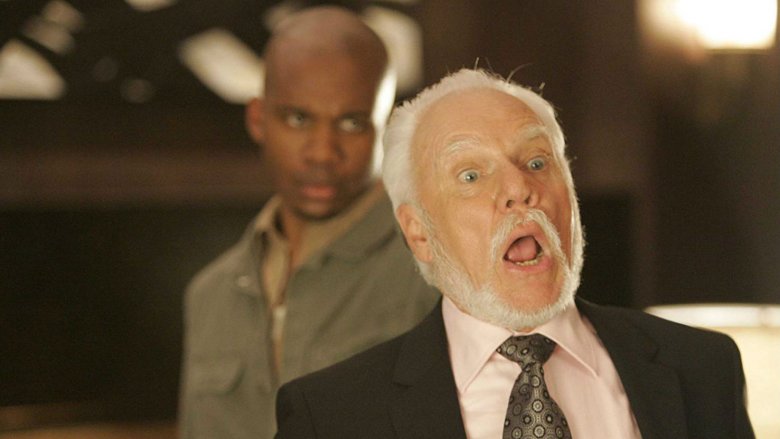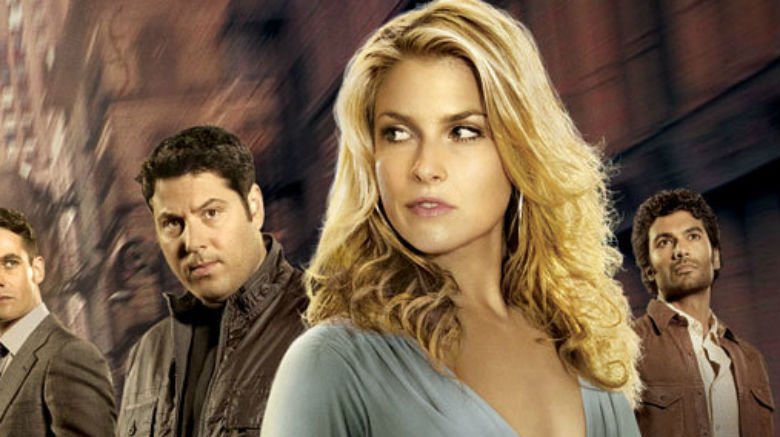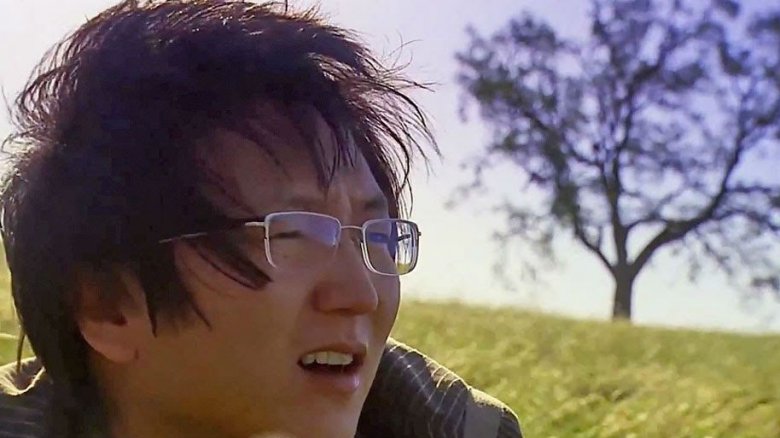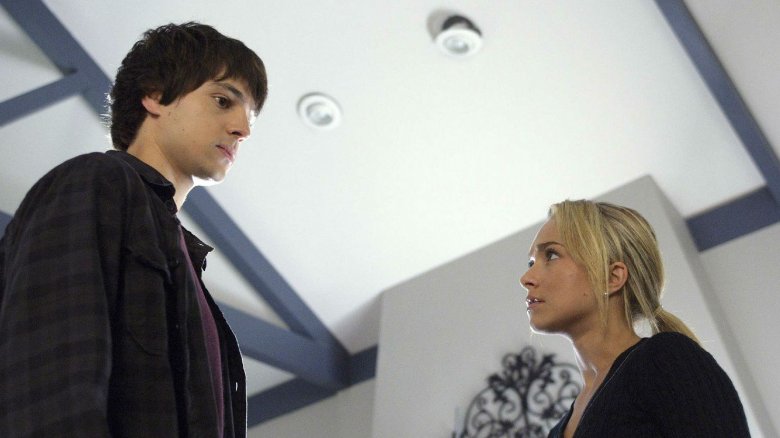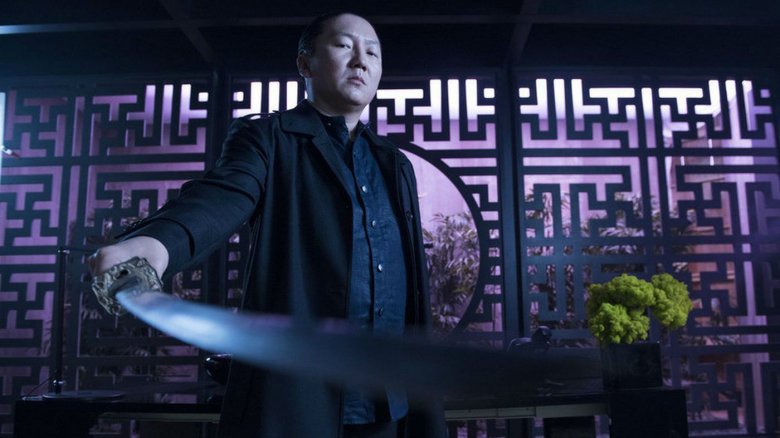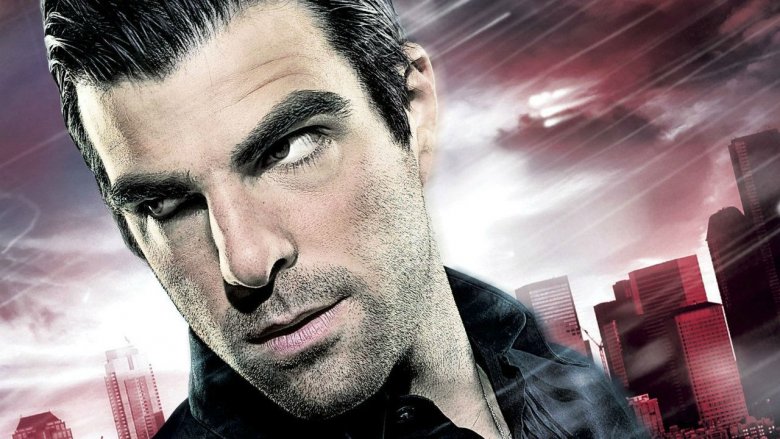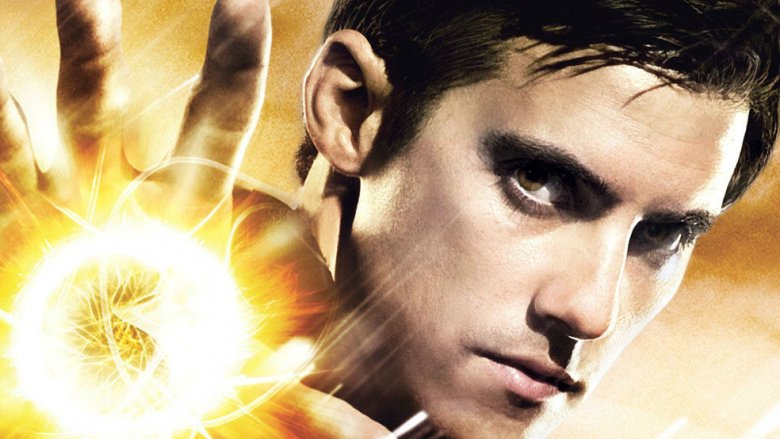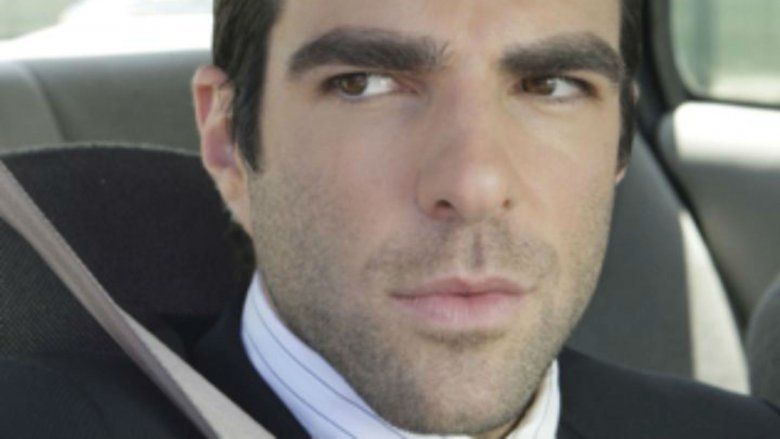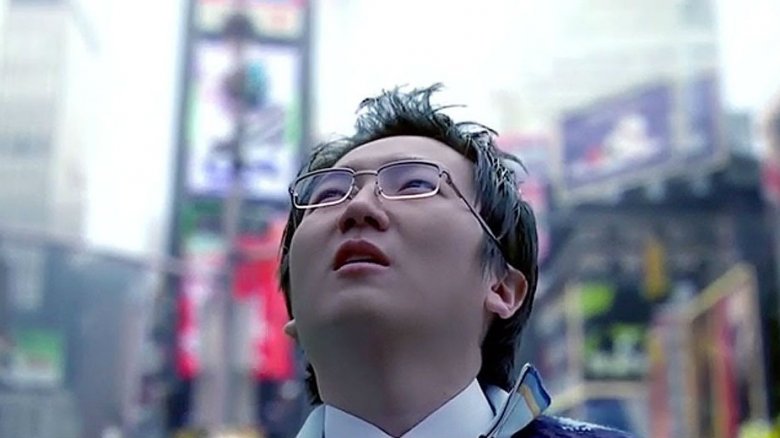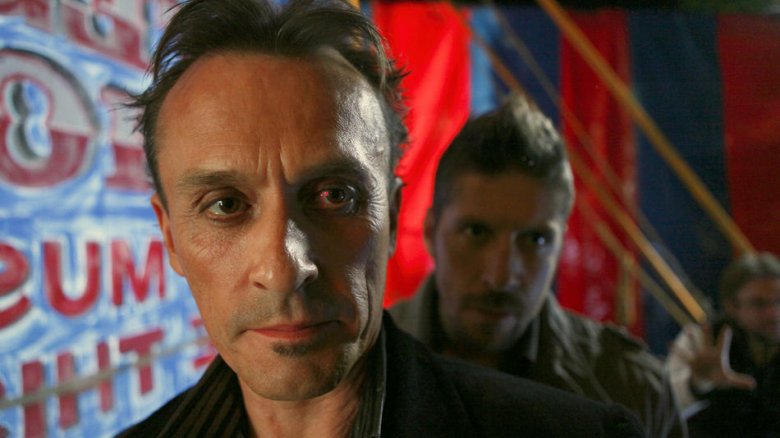The Real Reason Heroes Was Canceled
In 2006, it looked like NBC's Heroes would enjoy a long, bright future. Its pilot episode, "Genesis," earned multiple Emmy nominations, attracted 14.3 million viewers, and broke a five-year ratings record in a key adult demographic. The MCU had yet to be born and the DCEU wasn't even close. It would be six years before Netflix premiered its first original series, much less became the home for street-level Marvel vigilantes like Daredevil and the Punisher. Audiences were enthralled by the story of ordinary people who inexplicably sprouted superhuman abilities and coped with the changes without the benefit of masks.
Unfortunately, Heroes proved it could only fly so far. By its second season, viewership dropped by 15 percent, and things only got worse from there. Its fourth season premiered in 2009 to an audience of 5.9 million — a drop of 8.4 million from the 2006 airing of "Genesis" — and by the following May, the end of Heroes was official.
So what happened? Was Heroes a series that simply wasn't meant to survive its first couple of seasons? Was it an issue of acting, directing, or writing? In a parallel timeline — because its Heroes creative team made better decisions — is your alternate reality doppelgänger currently reading a feature titled "The real reason Heroes' 13th season is its best ever"?
Until we can sneak a peek into parallel universes and see what our alternates are doing, here's the real reason Heroes was canceled (in this timeline, anyway).
Death was too cruel
Heroes could be fairly merciless when it came to killing off important characters. That isn't necessarily a bad thing, but as early as the first season, characters who had wonderful promise — including ones played by actors any series should've bent over backwards to keep — were getting taken out like Batman's sidekicks.
One of the best examples is the death of Daniel Linderman (Malcolm McDowell). McDowell is an amazing talent, his name was arguably the biggest in the series, and Linderman was a fantastic villain — the kind you can't wait to see again. He was also a good example of one of Heroes' refreshing touches: the types of abilities certain characters had went against what you would normally expect. For example, Nikki (Ali Larter) is the only character in season 1 with super strength, a power usually associated with male heroes. Likewise, Linderman's superpower was healing, which is a pretty benevolent power for a bad guy. But whatever potential Linderman had was lost in "Landslide" — the first season's penultimate episode — when D.L. (Leonard Roberts) phased his fist through Linderman's brain, killing him instantly.
Other characters with great promise who were taken out before the first season was up include Isaac Mendez (Santiago Cabrera), who had the ability to paint the future, and Eden (Nora Zehetner), who killed herself in the 11th episode rather than allow Sylar (Zachary Quinto) to absorb her powers.
Death was too kind
While the first season of Heroes had an issue keeping promising characters alive, the following seasons took one too many pages from the comic books that inspired the show, and as a result suffered from not letting anyone stay dead.
The first season finale, "How to Stop an Exploding Man," ended with Nathan Petrelli (Adrian Pasdar) flying his brother Peter (Milo Ventimiglia) as high as he could, after which Peter's radioactive build-up caused him to explode. Yet the second season premiere, "Four Months Later...," resurrected both brothers. In the case of Nathan, the fact that he'd survived a nuclear explosion wasn't even treated as particularly strange. The return of Peter was given much more weight, and the reveal acted as the episode's surprise conclusion.
What was much more jarring was the death of Nikki Sanders and a strange resurrection that wasn't really a resurrection. Nikki was caught in an exploding building in Heroes' season 2 finale. The actress playing Nikki, Ali Larter, appeared as someone completely different in season 3. The new character was Tracy Strauss and instead of Nikki's super strength, Tracy exhibited the power to create and manipulate ice. Fans speculated Nikki had survived and was altered somehow, but no. It was eventually revealed Nikki and Tracy were two of three identical triplets, an explanation so lame they probably wouldn't even try it in a comic boo — no, they would. They totally would.
The writers' strike
Season 2 of Heroes was 11 episodes long — less than half the length of its first season. The reason wasn't mysterious — it was the same reason other hot network shows of the time, like Lost, Two and a Half Men, and The Office, shortened their seasons: the writers' strike.
From late 2007 to early 2008, members of the Writers Guild of America went on strike over stalled contract negotiations with the Alliance of Motion Picture and Television Producers. Bones of contention included compensation for internet content, DVD residuals, and whether the WGA would have jurisdiction over writers of animated entertainment and/or reality shows.
In fact, Heroes creator Tim Kring was on the picket line when he called Entertainment Weekly to discuss the show's 15 percent rating decline. "Yes, I'm picketing my own show," he told EW. He also gave reasons for season 2's underperformance. Among other things, Kring felt the pace was too slow and that the season's threatening Armageddon took too long to be introduced. The EW article predicts things would be looking up for the show, but calls season 2 "a wash." Because of the strike, the storytelling course-correct was too little, too late. Instead of ending the first half of a season (as was originally intended), the strike forced Heroes to retool season 2's 11th episode as a season finale.
Heroes never recovered fully after the second season. It would never again see the kind of ratings it enjoyed in season 1.
Bad Romance
One of the most touching stories in Heroes unfolds in season 1's "Six Months Ago," with Hiro's initially futile attempt to save the life of waitress Charlie (Jayma Mays). When Charlie is murdered by Sylar for her memorization powers, Hiro goes back in time to save her. He means only to go back a day, but instead travels back six months. At one point, Hiro and Charlie discuss origami and Charlie mentions the legend that someone who folds a thousand cranes will be granted a single wish. The most romantic moment in the episode — and arguably in the series — immediately follows, when Hiro uses his power to freeze time, and a moment later Charlie's diner is filled with literally a thousand cranes dangling from the ceiling.
But according to Heroes creator Tim Kring, that may have been the last time the show handled romance with any kind of skill. While speaking to Entertainment Weekly about the show's dip in ratings, Kring admitted their poor handling of romantic relationships was one of the more valid complaints. "I don't think romance is a natural fit for us," Kring said. EW specifically called out Hiro's crush over a 17th-century princess in season 2, and the young love brewing between Claire and "super-dud" West (Nicholas D'Agosto).
Too much soap
If you don't read comics, you might be confused in a comic shop. The fact that, say, Captain America #5 came out in 2018 might seem weird if you know the character started appearing in comics in 1941. Almost 80 years and only 5 issues? Pick up the pace, man. Of course, there are tons of Captain America comics, but Marvel has been rebooting its titles with growing frequency. Part of the reason for Marvel mashing the restart button is to attract new readers. To an uninitiated reader, a brand new Captain America #1 looks a lot more accessible than Captain America #248.
Likewise, once Heroes' second season underwhelmed, it seems likely the series grew more inaccessible not only to new viewers, but to old ones who bailed during season 2 and considered giving it another chance. The Heroes of seasons 3 and 4 did not look very much like its first season. Sylar jumped back and forth between bad guy and good guy. Characters like Peter and Ando (Jason Kyson) lost their powers and abruptly sprouted new ones or just inexplicably changed powers. Characters died and came back. Dystopian future timelines were introduced, featuring a grimmer sword-wielding Hiro. In one alternate timeline, everyone in the world had powers. Just dumping yourself in the middle of seasons 3 or 4 of Heroes likely seemed an intimidating experience, and if you were still smarting from season 2, you might not think it would be worth it.
Too dark
Long before audiences were telling Zack Snyder and the rest of the DCEU to stop with all the growly, dark brooding and maybe film some scenes that don't take place during dark rainstorms, critics were blasting Heroes for what Mary McNamara of the Los Angeles Times called its "graphic novel noir feel" that, with the season 3 premiere, was "becoming increasingly oppressive, and everyone is just so grim." McNamara said she wished "everyone would just lighten the heck up." Sound familiar? She could've been writing a review for Batman v. Superman.
Why did everybody need to lighten up? Well, io9's Charlie Jane Anders probably hit the nail on the head when she wrote that with its third season, Heroes "was just trying so damn hard." They were trying hard — trying hard to redeem the abbreviated mess of the second season and to recapture the excitement of the first. The theme of the third season was "Villains," turning its more heroic characters into jerks and Sylar into a good guy. Once again, an apocalypse was introduced right away, this time the Earth exploding from the inside. They tried to rekindle the urgent suspense that permeated season 1, but it never materialized. Rather than believing what they were watching was terribly important, viewers watched actors trying very hard to convince them that everything they said and did was terribly important... without much success.
Identity crisis
Part of the reason Heroes failed to impress after its first season is that afterwards, the show never seemed to know what it wanted to be or what to do with itself.
In Heroes' first excellent season, its characters learned to cope with their new abilities. Once they couldn't get any more from "How do we deal with these powers," they moved on to "how did we get these powers" by creating X-Files-esque conspiracy backstories for older characters like Angela Petrelli (Cristine Rose) and Hiro's father Kaito Nakamura (George Takei). Its fourth and final season leaped to the old Professor X/Magneto debate of "What do we do with these powers?" by featuring a new group led by Samuel (Robert Knepper) who acted differently from the more traditionally heroic Peter and Claire.
In other words, Heroes was a show about people with powers freaking out about the fact they had powers, and it never figured out how to be a show about anything but that. Think of Marvel's Fantastic Four when they first emerged from their rocket crash back in 1961, with each of the quartet panicking in their own unique way as their respective abilities emerged. Now imagine if the entire narrative history of Fantastic Four was just those four characters still at the rocket site, freaking out about their powers – that's Heroes in its entirety. Ordinary people made extraordinary by superpowers and in a constant state of needing to chill out about it and move on.
Choose a side already, Spock
A frustrating comic book trope is the flip-flopping of popular supervillains. One of the biggest superhero movies of 2018 – Venom, originally one of Spider-Man's darkest villains — is a perfect example. If a supervillain gets popular enough, the comic book companies either make them good guys, or at least make them straddle the fence between Justice League and Legion of Doom. Venom, Harley Quinn, Deathstroke, Catwoman, and even mass murderers like Joker and Thanos are easy evidence. There's nothing inherently wrong with redeeming a villain, but when you make a villain become a hero, you risk eradicating exactly what's so engaging about the character.
Sylar became another unfortunate member of the funnybook flip-flopping fraternity. Zachary Quinto masterfully played the chilling and terrifying villain Sylar of Heroes' first season, but his alliances became more fluid as of season 3. When he was captured by the clandestine organization known as the Company, Angela Petrelli convinced Sylar she was his mother. Attempting to rehabilitate himself, Sylar agreed to accompany Noah Bennet (Jack Coleman) in his Company work. After some road trips, Sylar went back to the dark side, only to then go back to the good guys again by the end of season 4, helping against Samuel (Robert Knepper) and his carnie villains.
By making Sylar flip-flop, the writers of Heroes gutted the proverbial goose of its golden egg. While Sylar was just straight-up bad, there was no scarier villain anywhere on television. Sometimes you've just got to keep the bad guys bad.
Heroes needed more Hiro
Sylar may have been Heroes' best bad guy (most of the time), but when it came to the good guys, Masi Oka as the wide-eyed innocent Hiro was one of the best reasons to watch the show. While most of the show's good guys came off as much as victims to their new abilities as they were beneficiaries, Hiro was the Billy Batson of Heroes — a boy (though grown) with his dreams of superpowers magically fulfilled.
Watching the first season of Heroes, viewers loved the sweet and lovable Hiro and couldn't wait to see him finally meet up with the show's other protagonists and prove himself against Sylar. During the battle against Sylar in the first season's finale, Hiro finally fulfilled the prophecy found in the pages of a comic book and ran Sylar through with his sword. But before any of the other characters even had time to ask who this Japanese guy was who came out of nowhere and stabbed a dude, Hiro was hurled through the air and teleported to 17th century Japan.
That time jump back to Japan — or at least the amount of time Hiro spent there — was a mistake. It kept Hiro away from the rest of the show's protagonists, and it didn't entertain on its own. Heroes creator Tim Kring said as much when talking to EW about the failures of season 2, admitting Hiro's adventures in the past should've lasted no more than "three episodes."
Kring says Heroes never should've left
Speaking to GamesRadar at 2015's San Diego Comic Con about the release of Heroes Reborn – the miniseries set ten years after the conclusion of Heroes' fourth and final season – Heroes creator Tim Kring said the show never should've been canceled.
Contrary to the numbers, Kring claimed Heroes' fourth season was a spectacular success. He said the problem was that Heroes' low ratings weren't an accurate gauge of its viewership. "We had a very big audience out there that was not watching in a traditional way," Kring said. "We were the most downloaded show on television the year that we were canceled. We were one of the most streamed shows, one of the most DVRed shows, sold millions of DVDs." Kring claimed the problem was that in 2010, there was no way to count the viewers who chose non-traditional ways to watch Heroes, but that by 2015 NBC was convinced to greenlight Heroes Reborn.
Heroes Reborn's failure to impress could give you good reason to doubt Kring's postmortem assessment of Heroes, but he thinks the poor reception to Heroes Reborn has less to do with the show's quality and more to do with audience expectation. "I really loved the idea that [Heroes Reborn] was a thirteen-episode event series, and when it was over, it was over," Kring told AssignmentX. "I feel a little remorse that I think a lot of people didn't understand that it was supposed to wrap up when it did."
